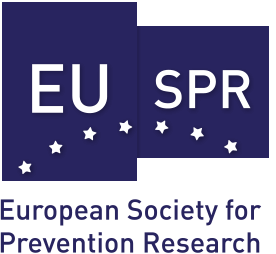| Keynote speaker | Presentation title | Biography |
|---|---|---|
 | Looking over or tearing down the wall: Tapping into the unleashed potential of improving health-literacy | As a thought leader Kristine Sørensen is committed to advance the global scope of health literacy. Her educational background is in medicine, public health and global health diplomacy. Kristine Sørensen is the founding director of the Global Health Literacy Academy, Denmark. She is the first President of the International Health Literacy Association and Executive Chair of Health Literacy Europe. She is also a member of the World Health Organization Technical Advisory Group on Health Promotion in the SDGs. Kristine Sørensen has been a health literacy advisor to the European Commission, the European Centre of Disease Control, the European Parliament, the European Council and McKinsey and is member of the advisory boards of European Health Futures Forum, Centre for Empowering Patients and Citizens, Bridge for Health and EU funded research projects. She is editorial board member of the Journal of Health Literacy and ICT&Health International. With colleagues, Kristine Sørensen was honoured the European Health Award 2012, the International Health Literacy Award 2017 and the AHLA Global Health Literacy Award 2018. |
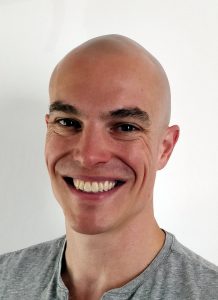 | Applying Prevention Science: Intervention Mapping as an Integrative Framework | Gjalt-Jorn Peters works on the intersection of behavior change, technology, and methodology and statistics. He leverages ICT to improve both behavior change research and practice. In addition to this methodological and theoretical work, his substantive research focus is nightlife-related risk behavior, such as use of alcohol and other substances, hearing protection, and sexual health. He is involved with the Dutch Celebrate Safe campaign, a national prevention effort uniting nightlife organisers and proprietors, preventions organisations, first-aid organisations, and security organisations. Within Celebrate Safe, he is responsible for the Party Panel determinant study, where every year, the determinants of another nightlife-related risk behavior are mapped, after which the results and data are made publicly available. Gjalt-Jorn works at the Dutch Open University, where he teaches statistics and methodology. He is also a co-founder of the Academy of Behavior Change, a foundation created to facilitate prevention science knowledge translation. One of his main interests is streamlining the intervention development process to make it more accessible without resorting to oversimplification. To this end, he is involved in projects that leverage open standards to develop open source freely available tools to support different tasks within the intervention development process, such as determinant studies, selecting behavior change principles, and documenting decisions and underlying justifications. |
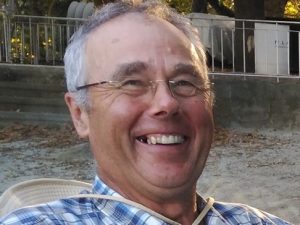 | Of Marketing and Human Folly: Time to Change the Narrative | Gerard Hastings is Professor Emeritus at Stirling University and also works with L’École des Hautes Etudes en Santé Publique, Rennes. He founded the Institute for Social Marketing which he directed for many years, and his academic career has focused on researching the impact of marketing on society – both for good and ill. This has involved him in advising Government and working with policy makers and civil society nationally and internationally. He was a Special Advisor to the House of Commons Health Select Committee during its enquiries into the tobacco (2000), food (2004), pharmaceutical (2005), and alcohol industries (2010) and acts as a Temporary Advisor to the World Health Organization on communicable and non-communicable disease. He has also been an expert witness in litigation against the tobacco industry in the UK and internationally, and in 2011 successfully challenged the Industry’s right to access confidential research through Freedom of Information. He sits on the BMA Board of Science, is a member of the Lancet Obesity Commission, a Trustee of the UK Health Forum and a Schools Speaker for Amnesty International. He has published widely in academic outlets, especially in health and business journals. His latest books are Social Marketing: Rebels with a Cause (with Christine Domegan) and The Marketing Matrix: how the corporation gets its power and how we can reclaim it are published by Routledge. In 2009 he was awarded the OBE for services to health care. In 2014 he accepted the Queen’s Anniversary Prize for Higher and Further Education on behalf of the University of Stirling for the Institute for Social Marketing’s critical marketing research. |
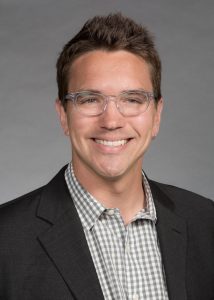 | Integrating human-centered design and implementation science to improve the accessibility and effectiveness of mental health services | Aaron Lyon, Ph.D., is an Associate Professor in the University of Washington (UW) Department of Psychiatry and Behavioral Sciences, Director of the UW School Mental Health Assessment, Research, and Training (SMART) Center, and a licensed clinical child psychologist. Dr. Lyon’s research focuses on increasing the accessibility, efficiency, and effectiveness of community- and school-based interventions for children, adolescents, and families. He is particularly interested in (1) the identification and implementation of low-cost, high-yield practices – such as the use of measurement-based care – to reduce the gap between typical and optimal practice in schools; (2) development of individual- and organization-level implementation strategies to promote adoption and sustainment of evidence-based psychosocial interventions within a multi-tier systems of support (MTSS) framework; and (3) human-centered design / redesign of evidence-based psychosocial interventions, digital technologies, and implementation strategies to improve service accessibility and effectiveness. Dr. Lyon is the author of over 100 peer-reviewed articles and book chapters and is currently Principal Investigator on grants from the Institute of Education Sciences, National Institute of Mental Health, National Institute of Justice, and various local and national foundations in the United States. |
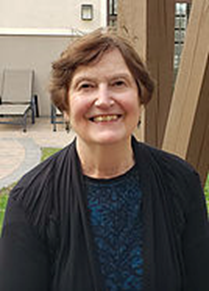 | Looking Over the Wall—The Future of Prevention Science and Prevention | Zili Sloboda is the President of Applied Prevention Science International and an adjunct professor at the Kent State University College of Public Health. She was trained in medical sociology and in mental health and epidemiology. Her research has focused on substance use epidemiology, services research, and the evaluation of treatment and prevention programs. Her current focus is on establishing the field of prevention science, developing an international cadre of prevention professionals, and on studying the relationship between training in prevention science and the implementation of evidence-based prevention interventions and policies. She has served on the faculties of three universities and worked at the National Institute on Drug Abuse for 12 years in several capacities, the last as the Director of the Division of Epidemiology and Prevention Research including HIV and substance use. While at NIDA she and her staff organized the International Epidemiology Work Group and the International HIV Prevention Network. She was one of the founders of the U.S. and E.U. Societies for Prevention Research and is well-published in the area of substance use epidemiology and substance use prevention. Her major books include the Handbook of Drug Abuse Prevention, Epidemiology of Drug Abuse, Defining Prevention Science, and Prevention of Substance Use. In addition, she has a long standing commitment to the dissemination of evidence-based programming and the advancement of Translation I and II research through work with the U.S. Society for Prevention Research and with the United Nations Office on Drugs and Crime. She has received several commendations for her work from the National Institutes of Health, the U.S. and EU Societies for Prevention Research. |
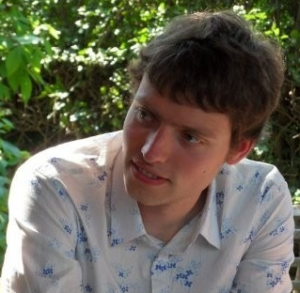 | Prevention and communication | Jonathan Deleener studied Germanic Languages and Audiovisual Communications. He is currently part of the communications team at VAD, the Flemish centre of expertise on alcohol and other drugs. In this role, he has been involved with multiple prevention campaigns on alcohol, cannabis and other drugs, of which Tournée Minérale is the best known. |
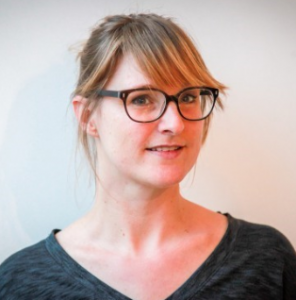 | Prevention and communication | Designer for social innovation. Elizabeth has a background in psychology and worked in sexual health promotion for over 15 years. She did project and policy work in Belgium and in developing countries. She uses human centered design as a framework and its creative methods for participative projects and social innovation. In 2016 she co-founded Twisted Studio, a service design agency. They partner with organisations that want to develop services and policy bottom-up. |
Presentations are available below:
Plenary session 1
Kristine Sørensen – Looking over or tearing down the wall: Tapping into the unleashed potential of improving health-literacy
Gerard Hastings – Of Marketing and Human Folly: Time to Change the Narrative
Sofa plenary 1
Zili Sloboda – Looking Over the Wall—The Future of Prevention Science and Prevention
Sofa plenary 2
Jonathan Deleener – Prevention and communication: Alcohol campaigns in Flanders – Lessons learned
Plenary session 2
Gjalt-Jorn Peters – Applying Prevention Science: Intervention Mapping as an Integrative Framework
